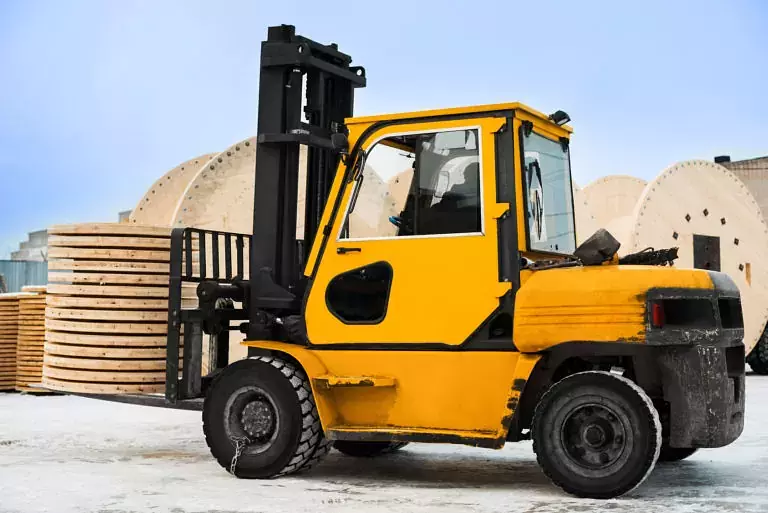 Mother Nature can be quite the opponent. For the forklift, it can be an adversary that seems impossible to overcome. From the rigors of extreme weather, material handling appliances are prone to a wide range of functional and operational troubles. However, the good news is a variety of steps can be taken to minimize and reduce these events. From the frigidity of winter to the heat of summer, there are approaches you can take to protect your fleet from the harshness of extreme weather. Here are five ways to care for your forklift during harsh weather:
Mother Nature can be quite the opponent. For the forklift, it can be an adversary that seems impossible to overcome. From the rigors of extreme weather, material handling appliances are prone to a wide range of functional and operational troubles. However, the good news is a variety of steps can be taken to minimize and reduce these events. From the frigidity of winter to the heat of summer, there are approaches you can take to protect your fleet from the harshness of extreme weather. Here are five ways to care for your forklift during harsh weather:
Analyze Patterns From Last Year To Determine Maintenance Needs
Naturally weather patterns shift on a yearly basis. However, all tell a story that owners should take credence in. Looking at last years patterns in usage, repairs, and downtime can help derive an accurate forecast for maintenance needs as well as potential pitfalls that can hinder performance. Analyzing patterns in all four seasons can provide the best vantage of how each vehicle handles a variety of scenarios and environs.
2) Prepare Operators – With the introduction of forklift simulators, it has never been easier to prepare operators for all that harsh weather could potentially present. Complementing this educational material with comprehensive training seminars can equip a novice with the required skills to take on all that Mother Nature has to offer. In addition, it also will promote the best practices to maintain apparatus during the most treacherous of conditions.
3) Store Forklifts In Dry Areas – There are a multitude of reasons why forklifts should be housed in dry areas. The most notable reasons are to prevent deterioration from oxidation and exposure of electrical parts to the elements. Both of these variables can create disastrous circumstances for any vehicle within your fleet, as the electrical system can fail or essential components rust away.
4) Pay Special Attention To Cleaning – This bullet point coincides with the above. It is essential not only to store your vehicle in optimal conditions but to also pay special attention to cleaning the appliance itself. It is imperative to combat the build up of salt and rust which adversely affect any forklift’s ability to operate, perform, and succeed in doing its job. Utilizing the appropriate rust inhibitor agents or chemicals to break down salty compounds is a fundamental part of conducive and progressive forklift care.
5) Restrict Speed – A chief cause of accidents when using a forklift in any material handling scenario is a failure to drive the vehicle at a safe and appropriate speed. In many instances, operators travel at a speed that is not safe for pedestrian foot traffic or ideal for safe handling. This is often a cause of incidents in friendly indoor environments. When the weather becomes inclement, the probability of an accident rises even if the forklift is handled properly. Due to the slip and slide potential with rain, ice, and snow the best way to protect your forklift is reduce the likelihood of an accident. Restricting speeds does just that. According to TotalTrax, such a tactic is a key part of root cause analysis for many forklift incidents and a vital part of fleet management.
